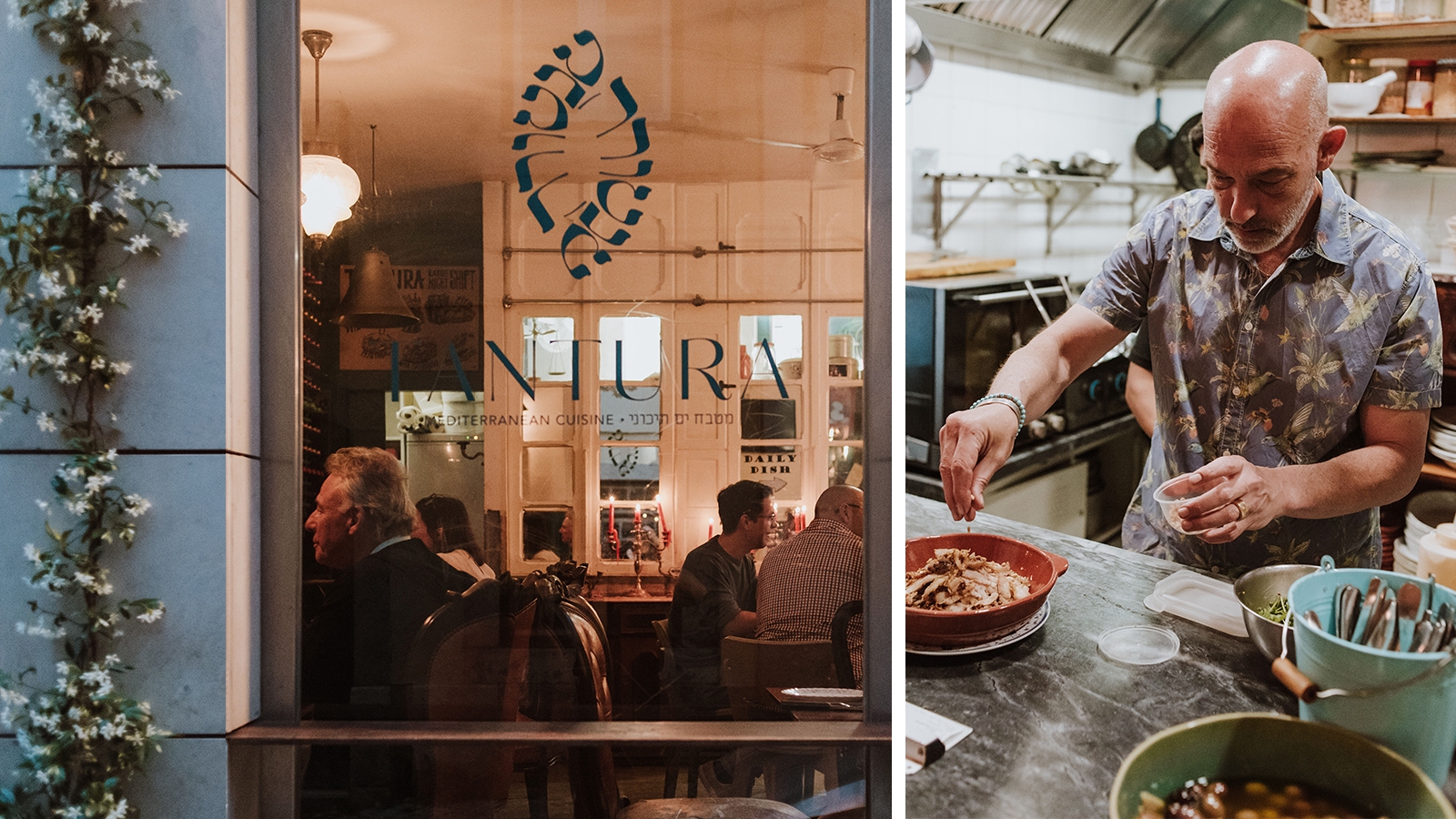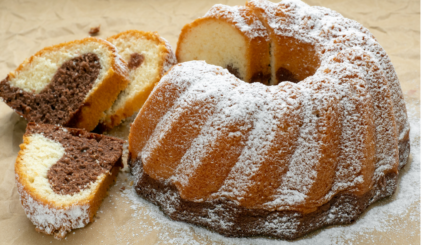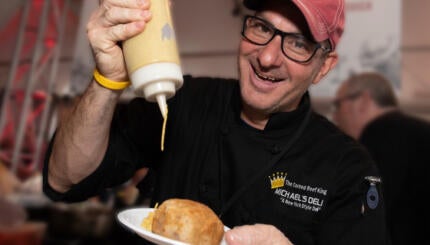Up in the hills of Lisbon’s Bairro Alto, a trendy neighborhood with cobblestone streets and lively squares, stands Tantura — a beloved Israeli restaurant with a rich tapestry of cultural influences. You may be surprised to learn that a gem like Tantura exists in Portugal, but owners and culinary power couple Elad Budenshtiin and Itamar Eliyahu have charmed locals with their blend of old world nostalgia, innovation and style.
Tantura’s roots trace back to an Israeli village of the same name, where Itamar’s family ran a small vacation rental business. He and Elad helped make meals for the guests, and their food was so popular that they started catering for other hotels in the local area, leading them to consider opening a restaurant of their own. Citing what felt like to them was an insurmountable level of bureaucracy, they decided against opening a restaurant in Israel. But when the couple found their way to Praça Luís de Camões, Portugal eight years ago while on their honeymoon, They were inspired by the allure of a Lisbon reminiscent of Tel Aviv in the ’90s, and decided to open a restaurant there.
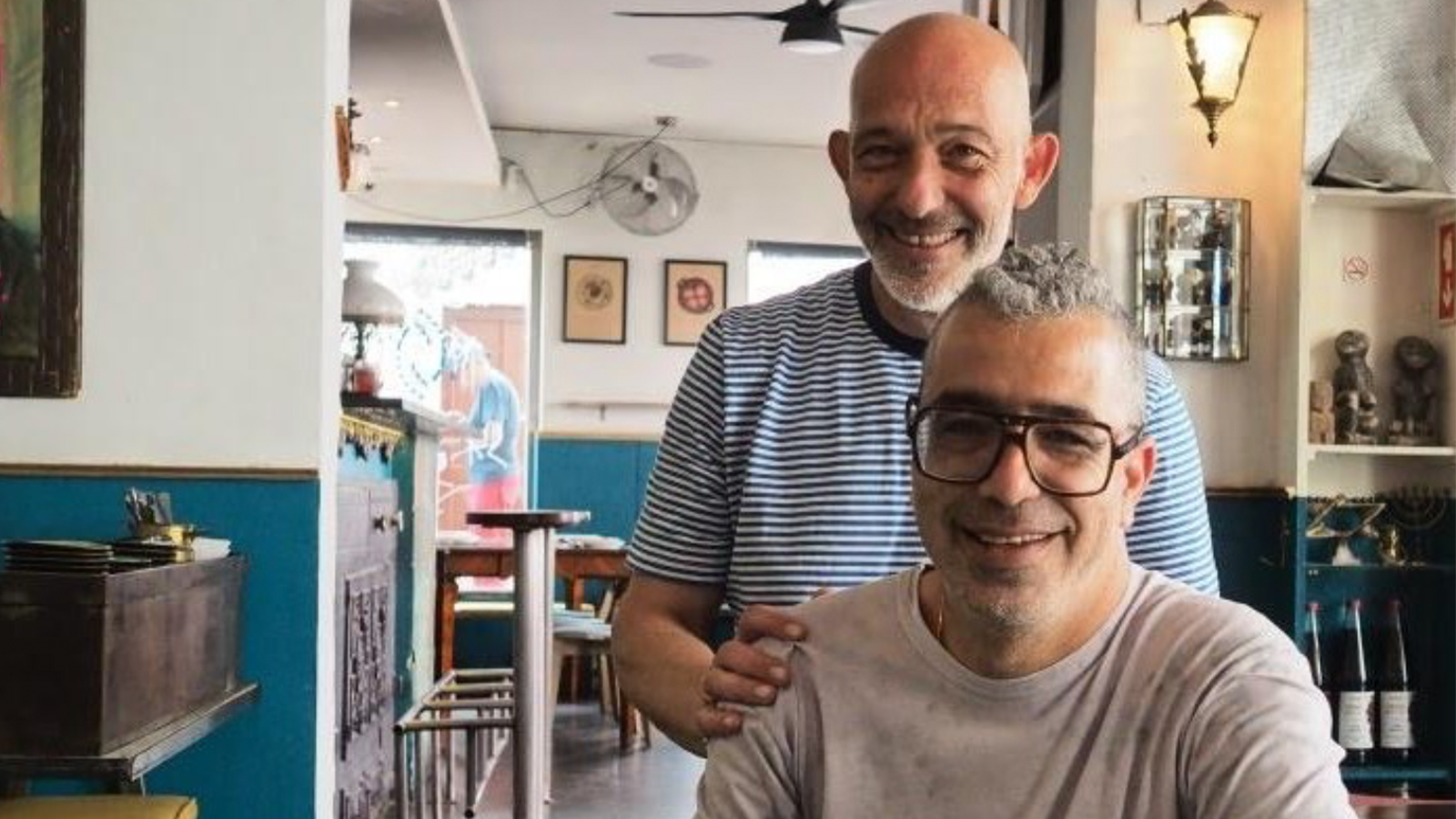
“We came to Portugal with two suitcases, one full of clothes and another empty for our huge dream,” said Elad.
With determination and a limited budget, Elad and Itamar transformed their vision into reality. Tantura took six months to find and renovate, with every detail of the quirky space meticulously crafted by the owners themselves. Elad, who had initially sworn off kitchens because of the grueling workdays and how unforgiving the public can be, found himself back in the culinary world, driven by a passion to recreate the flavors of his childhood and showcase the unique fusion of Israeli cuisine. Growing up, he said, “one neighbor was Persian, one neighbor Moroccan, another Iraqi and so on… you travel through the world in your own building.”
The Nosher celebrates the traditions and recipes that have brought Jews together for centuries. Donate today to keep The Nosher's stories and recipes accessible to all.
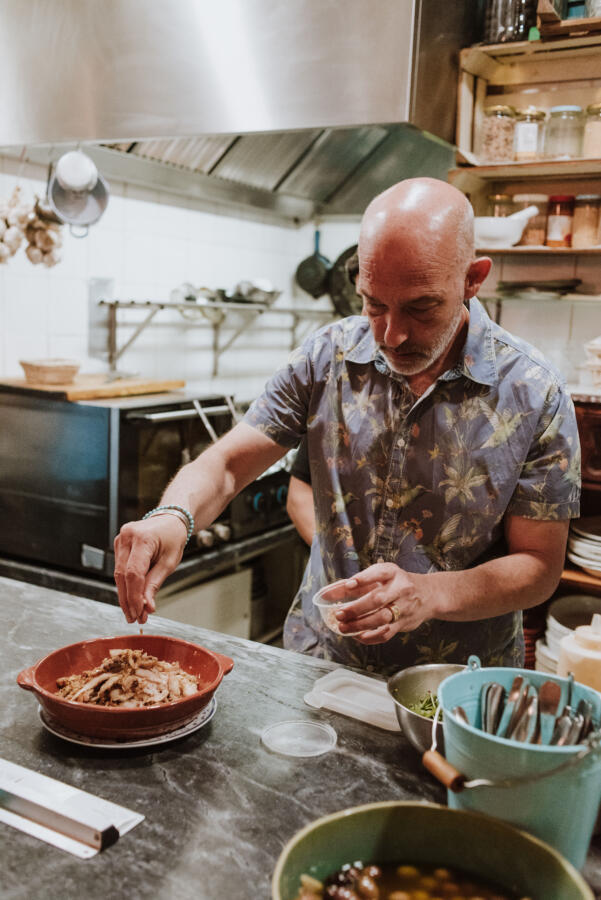
Little did the couple know that their dream would materialize into a bustling restaurant that seats 80 guests and would capture the hearts and palates of locals and visitors alike. “We never expected it to be this big, to be honored by so many people,” Elad said.
“We had in our mind to get something very small with three or four tables, and we would be very happy.”
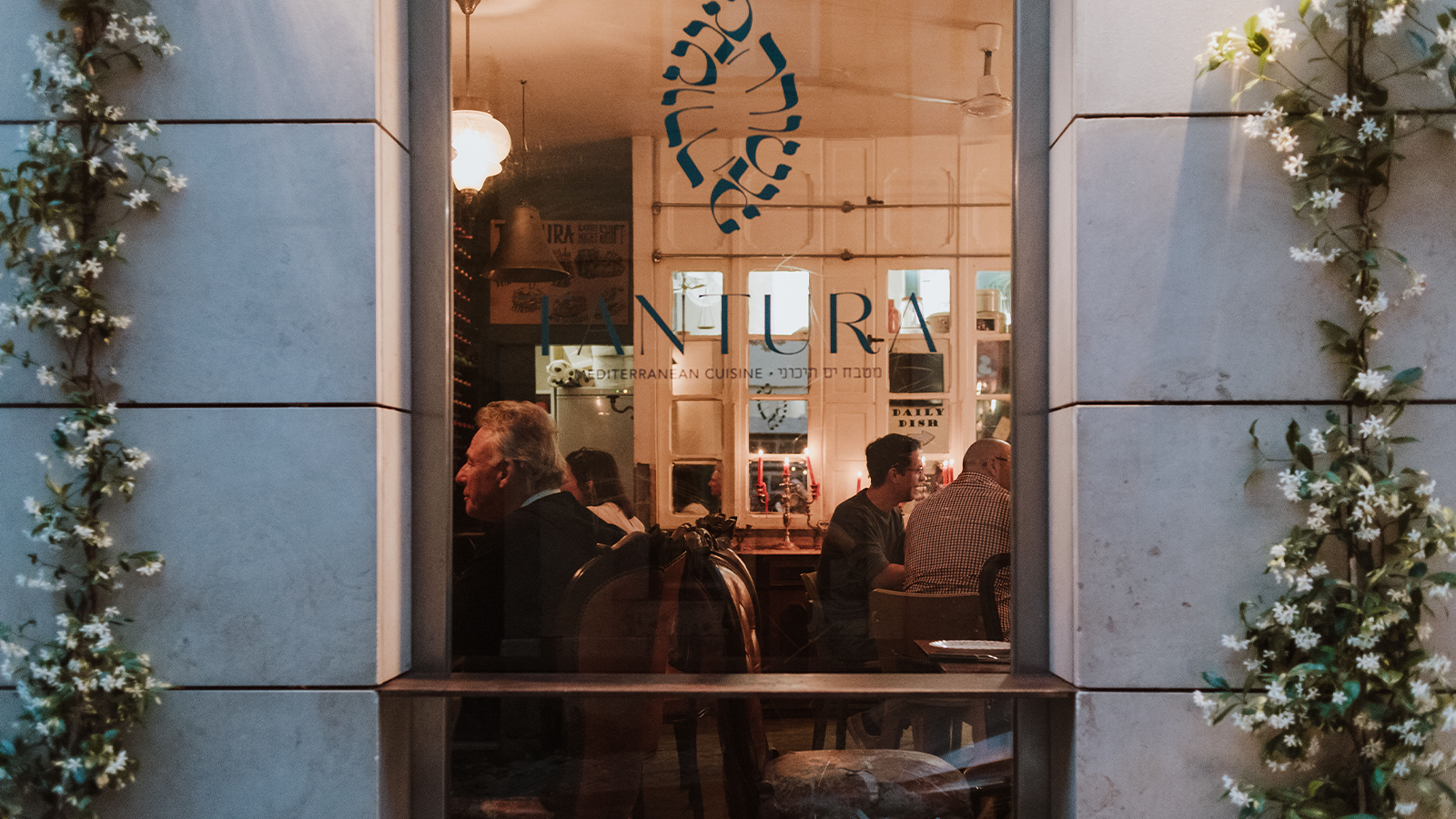
They cater to a diverse clientele, ranging from hipsters indulging in hummus before a night out to those opting for a mid-range dining experience. “We built Tantura to attract a rich variety of clients, and it’s been insane since then,” Elad said.
Tantura’s menu pays homage to their grandmothers and the diversity of culinary influences in Israel, including Romanian, Polish, French and even Portuguese (from Inquisition times). Their dishes, from Iraqi chickpea sambusak to homemade pistachio halva, evoke the warmth of coming home.
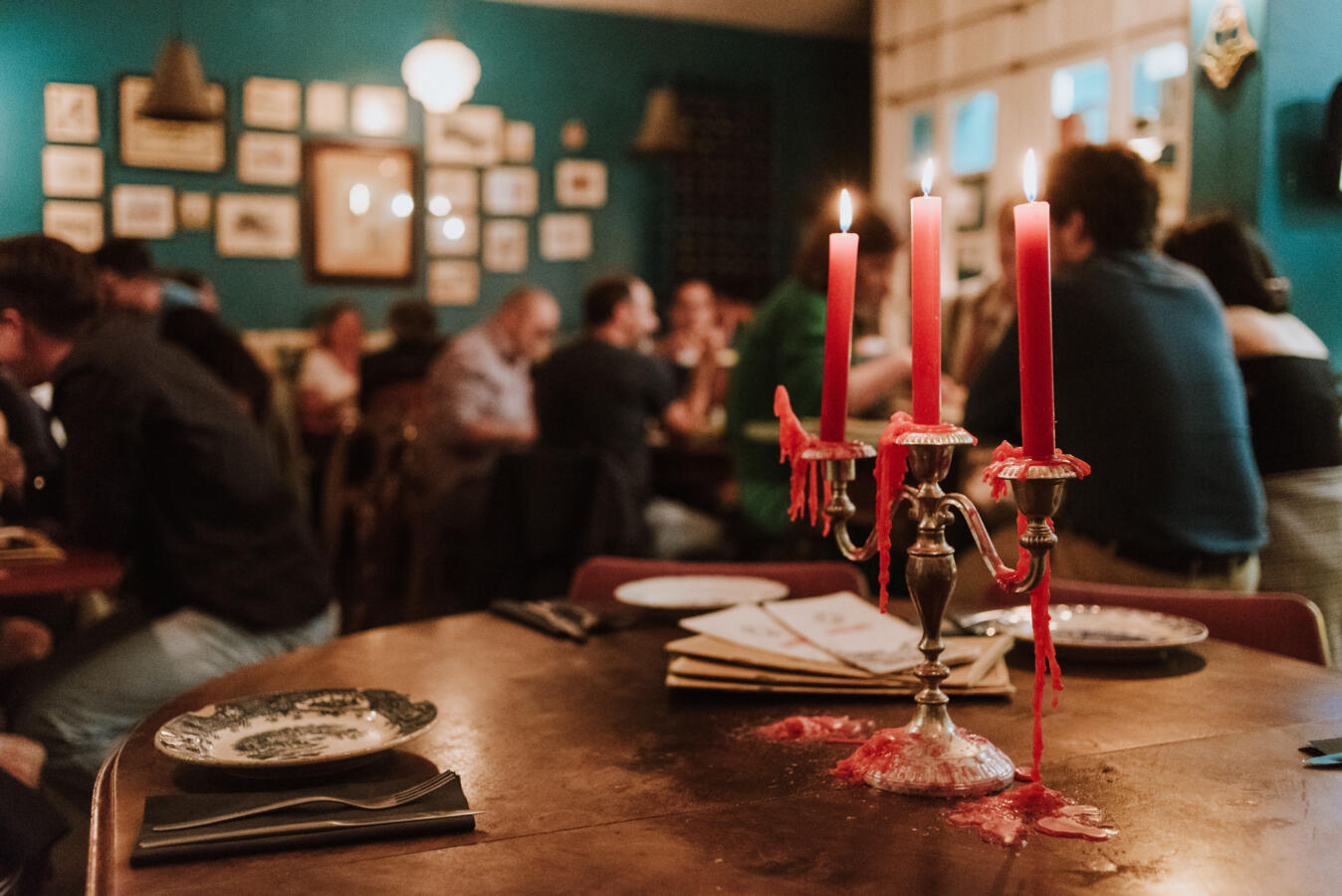
The restaurant has even won over what Elad describes as a discerning local Israeli-Yemenite community, a testament to their commitment to preserving authentic flavors and his ability to perfect kubaneh, which he worked on for a while. It was all worth it after one guest’s reaction: “This guy looked at me and he said if my grandma was alive, she would kiss your hands. I was in tears because this (what we are trying to do) — to recreate the old flavors that we were raised on.”
While Tantura introduces Israeli flavors to Portugal, Elad and Itamar acknowledge the symbiotic relationship with Portuguese culinary culture. Both share a profound respect for quality ingredients, with Elad noting, “the Portuguese have the know-how to pick their things. And I think we are very similar in this.” One of their most popular dishes is shakshuka, described by Elad as transcending cultural boundaries, with some Portuguese asserting its similarity to a dish from the Alentejo region.
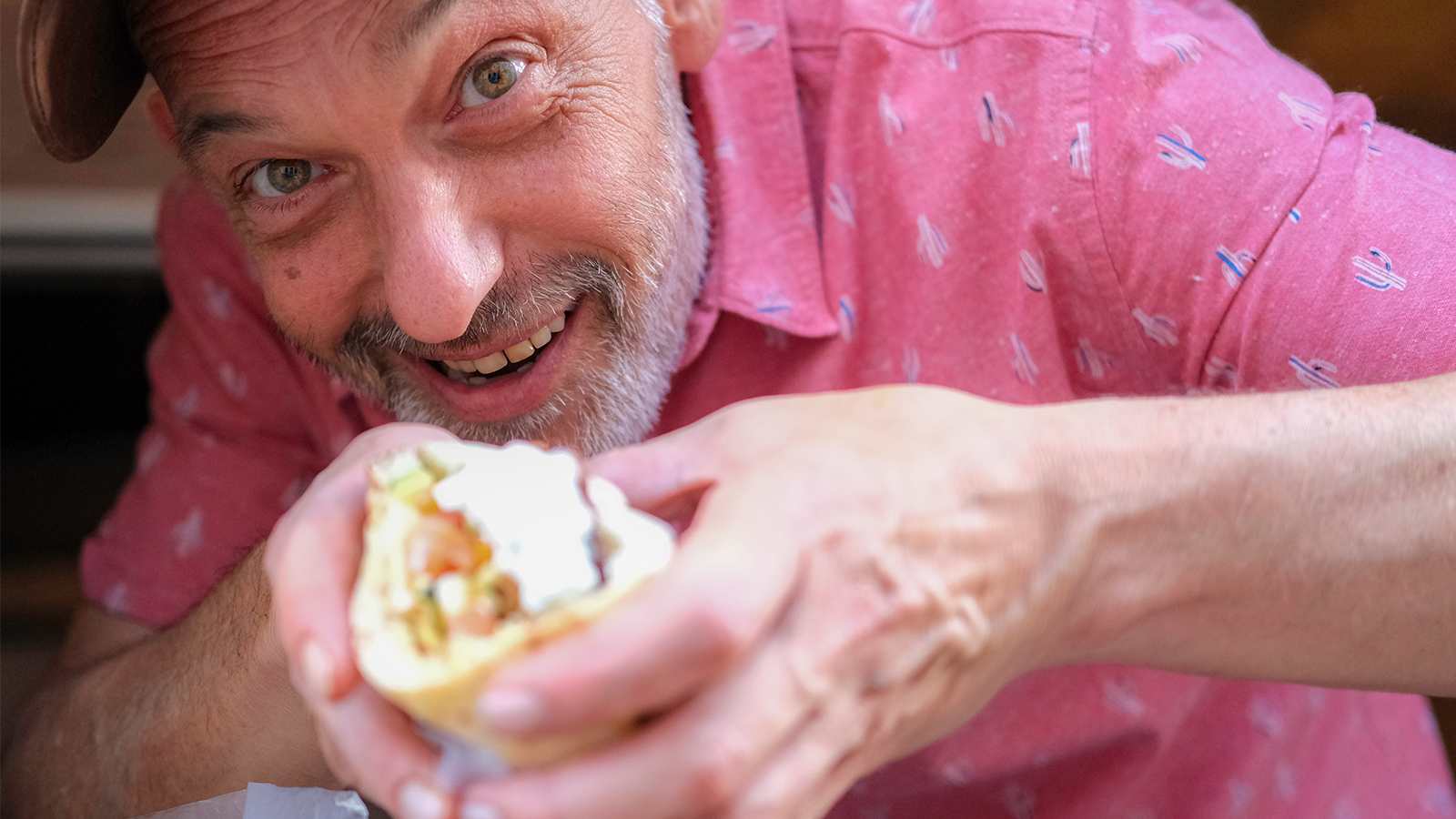
As custodians of Jewish culinary heritage, Elad aims to navigate the delicate balance of respect for tradition with the constant evolution of Jewish food and openness to new flavors and techniques. He and Itamar explain the Jewish holidays to their staff to ensure that the spirit of tradition is conveyed to customers.
“The essence of Jewish food, and the family gathering around, is something that keeps it uniting people. This will never change,” he said.
